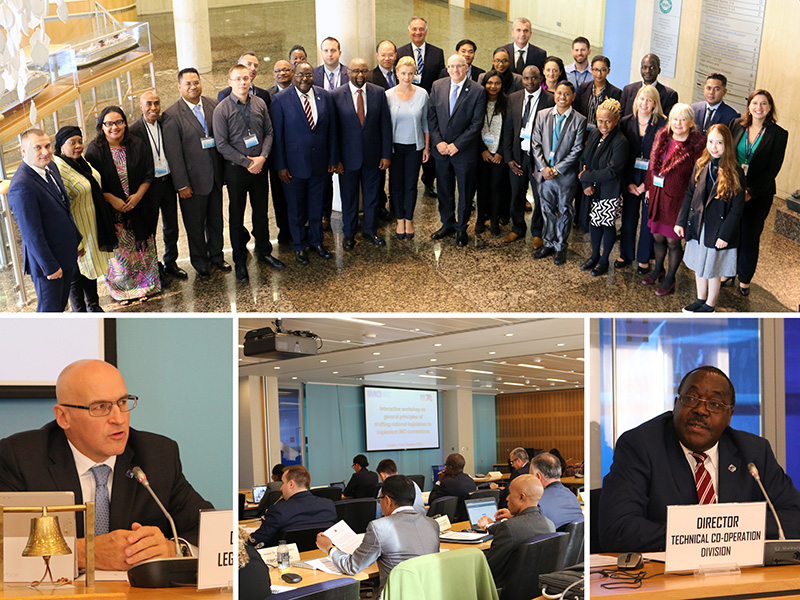As part of its efforts to improve the way its treaties and conventions are implemented at a national level, the IMO offered an intensive 5-day workshop for lawyers and legislative drafters at IMO Headquarters, on 1-5 October, to provide them with the tools they need to understand the treaties and how these are developed and adopted.
For treaties implementation, domestic implementing legislation is required, but audits carried out by IMO reveal that, in many countries, it either doesn’t exist or is incomplete.
To address this need, participants at IMO workshop from 16 countries learned the general principles of drafting national legislation to implement IMO conventions, with special emphasis on the amendment process, in particular the tacit acceptance procedure.
In addition, guidance was provided on drafting techniques, and the workshop also offered an opportunity for networking and sharing experiences, particularly with regard to the challenges countries may face in implementing IMO’s technical regulations into national law.
Participating countries included Argentina, Czech Republic, Ecuador, Eritrea, Malawi, Maldives, Montenegro, Nigeria, Palau, Poland, Republic of Moldova, Solomon Islands, Timor-Leste, Tonga, Tuvalu, Viet Nam and two participants from the Pacific Community (SPC).
This move coincides with a statement by INTERCARGO Chairman on the sidelines of the association’s annual meeting in early October, stressing a ‘lack of understanding’ by regulators who ‘do not engage in discussions with the sector prior to their decisions, on the practical issues related to the implementation of the regulations‘.
































































